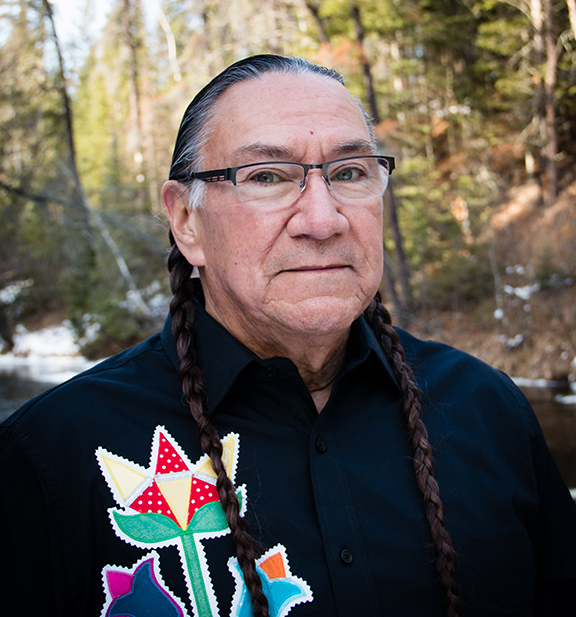By Arne Vainio MD
I was a brand new physician on call and he had fallen off a barstool about a week earlier. Eventually he had trouble breathing and the ambulance took him to the Emergency Room. A chest x-ray, then a CT scan showed he had bled into the pleural space around his right lung and collapsed his lung almost completely. He had two broken ribs and I could see every breath was painful for him. He winced when I examined the bruised area below his right armpit and he stopped his breath short when I put my stethoscope in the area of his broken ribs.
He never complained. He had to be taken to surgery for a decortication of his right lung, which meant the surgeon had to make a large incision between his ribs to go in and scoop out and peel off the clotted blood that was stuck to his lung. He had lost almost half his blood volume and needed transfusions before he went in to surgery. After surgery he had to have a tube going into his chest to pull the air and blood out continuously so his lung could gradually inflate itself again. He was on a ventilator for a few days and the tube was in for almost a week.
He was polite every morning when I went in to round on him and he smiled at me every time, even when I could clearly see he was in pain. Once the breathing tube came out, he was able to talk, but he never volunteered any information and his answers were brief. He would never call the nurse to ask for pain medicines because he didn’t want to bother her and said he knew she was busy. He always thanked me for coming in.
He recovered from that completely and his collapsed lung just became a part of his history. We grew to really like each other and I was always happy to see him on my schedule. He had some abdominal pain at a visit several years later. I ordered x-rays and they showed pieces of shrapnel from a war injury in Korea. He had never volunteered that information and on further questioning, he also had shrapnel in his left knee. The shrapnel wasn’t the reason for his pain and it never really bothered him and he declined to have it removed. I made a notation in his chart that he was a war hero and needed to be treated with respect and for the most part the Emergency Room doctors honored that.
He continued to drink and off and on would end up in the hospital because of it. During his binges, he stopped taking his diabetes and high blood pressure medicines and eventually he was admitted to the hospital with a heart attack. This damaged the left side of his heart and made him prone to getting congestive heart failure, or fluid in his lungs. He didn’t come in for visits very often and most of the time I saw him was when he was hospitalized for something.
His diabetes continued to worsen and I could never convince him to take his insulin regularly. Consequently he suffered a stroke that made his right side weaker and that caused him to fall several times. He walked differently than he used to and he ended up with a blister on his right foot. That went on to become a sore that just never healed and he finally ended up with osteomyelitis, or an infection in one of the bones in his foot. This is very difficult to treat with antibiotics and he eventually had an amputation below his knee. He was never able to get the hang of a prosthetic leg and spent most of his time in a wheelchair.
His amputation made it impossible for him to live on his own and he was in a nursing home for about a year, then a group home. He always said the food was fine, the staff treated him well and he denied any pain. The staff brought him in for regular visits and his blood sugars and his high blood pressure finally came back into control.
I tried a few different ways to ask him about his war injuries and he always changed the subject. One time his eyes got moist when I asked him about Korea and his injuries.
“I couldn’t save him.”
“Who?”
“It doesn’t matter. It was a long time ago.” He changed the subject and he would never talk about it again.
His circulation was so bad that his left foot turned dark and he didn’t tell the staff members about it until his foot was cold. I saw him in the clinic and directly admitted him to the hospital. It was too late to save his foot and he had an amputation of his left leg just below the knee.
He came in a few times for urinary tract infections and he came in for regular visits, but years of uncontrolled diabetes had already done irreparable damage. His eyesight was failing and cataract surgery only helped a little. He was hoping laser treatments to his eyes would bring back some of his vision, but the treatments were to try to prevent further damage.
He went into renal failure and I had to stop one of his heart medicines as his kidney function was worsening. I referred him to a kidney specialist, but he didn’t understand anything that was said to him when I asked him about that visit. “You’re my doctor. I’ll trust you to know what to do.”
He had episodes of congestive heart failure off and on and he usually recovered with a few days in the hospital on intravenous medicines to get his kidneys to get rid of the fluid buildup.
He was admitted for a similar episode and this time his x-rays showed a pneumonia filling his right lung. His temperature was high and his labs showed he was fighting an infection. He was agitated and moaning and needed to be sedated. He pulled his IV out and kept trying to get out of bed. His niece was his only relative and he had signed forms giving her permission to make decisions for him if he became incapacitated. He made it clear he did not want to be on a ventilator again.
Two days of IV antibiotics made no difference and his pneumonia was getting worse on repeated daily chest x-rays. His lung sounds were coarse and wet. I gave him a diuretic to try to pull some fluid off his lungs and it dropped his blood pressure too much to repeat it. He would intermittently answer questions, but mostly was restless and not responsive.
His niece finally asked if we could just make him comfortable, as he just wasn’t getting better and at 86 years old, didn’t have any reserve left. We stopped his antibiotics and I stopped all medicines except those for pain and agitation.
The next morning I went in and he was still restless and not responding to his nurse. His lungs sounded worse and his breathing was labored. I discussed plans with his nurse and she left the room and it was just he and I. I pulled a chair up and moved closer to his ear so I could talk to him quietly.
“It’s Dr. Vainio. I remember what you told me a long time ago. There’s no way you could have saved him. No one could and it’s not your fault. You did your best and he knows it and he always knew it.
I have something for you and for him. It’s the only Ojibwe song I know and it was given to me to sing in the American Cemetery in Luxembourg. I sang it there for my wife’s great uncle Johnny Mercer and everyone who died on that B-17 bomber and for every warrior there. It’s a Soldier Song and I want to sing it for you now.
It’s the only thing I have left for you.”
I didn’t have a drum, so I held his hand and I tapped out the drumbeat on the back of his hand with my other hand and I started to sing.
I was uncertain at first, but about halfway through the song, he began to relax and my singing became stronger. His grimace softened and he started to breathe easier and he stopped his constant restless moving. His hand had been simply resting in mine and he began to hold my hand and he held it until the song was done. He didn’t open his eyes and he didn’t say anything. After a minute or so his hand stopped squeezing mine. I held it for a little bit longer and I put it back on his chest.
His niece was with him and she called me after he died later that morning. “He was really calm, Dr. Vainio, and he died peacefully. What did you finally give him that made such a difference?”
“He was a soldier. I just gave him permission to die with honor. It was the only thing I had left for him.”






